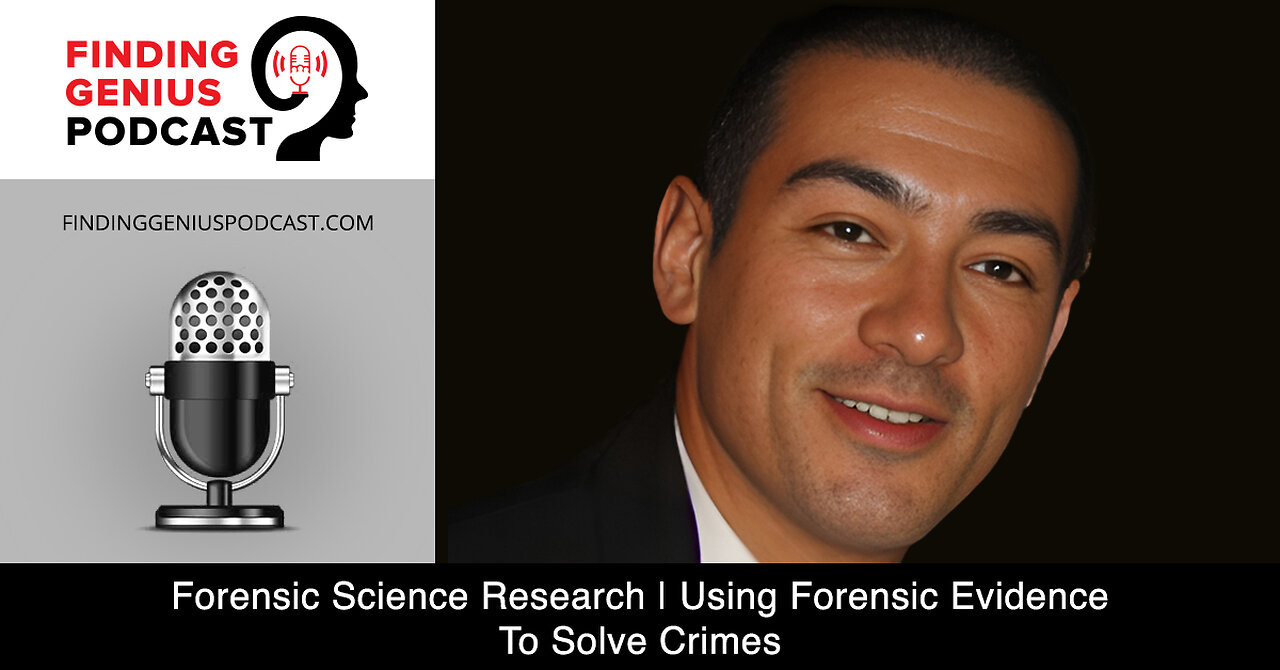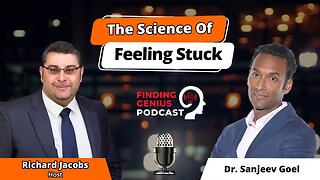Premium Only Content

Forensic Science Research | Using Forensic Evidence To Solve Crimes
Today, we sit down with Josep De Alcaraz, an Assistant Professor of Forensic Science at the University of New Haven and a Seasonal Lecturer at the University of Barcelona. For nearly nine years, Josep worked as a member of a Forensic Science unit of the Mossos d’Esquadra as a representative of the Handwriting and Document Analysis Laboratory to ENFSI. On top of this, he is directing an international research project on latent fingerprint dating technologies.
Since 1996, Josep’s professional and educational careers have developed in three countries – both the public and private sectors. With a Ph.D. in Molecular Biology from the University of Liverpool and a M.S. in Criminalistics from the University of Barcelona, he is actively involved in the forensic science community, and is a member of the American Academy of Forensic Sciences and the International Association for Identification.
In this conversation, we go over:
1. How Josep got into forensic science.
2. Why crime scene work is so unpredictable.
3. How crime investigation can psychologically impact those who do it.
4. What the future of forensic science may be.
5. The influence of CSI shows on real criminal cases.
You can learn more about Josep and his work by clicking https://www.newhaven.edu/faculty-staff-profiles/josep-de-alcaraz-fossoul.php, and can contribute to his Indiegogo campaign, “Forensics in Time and Space,” https://www.indiegogo.com/projects/forensics-in-time-and-space#/.
Also check: https://bit.ly/46whNEY and https://bit.ly/3ttT5Xj.
Episode also available on Apple Podcasts: apple.co/30PvU9C
-
 26:19
26:19
FGP
4 days agoThe Science Of Feeling Stuck: Dr. Sanjeev Goel On Growth, Purpose, & Longevity
23 -
 10:23
10:23
Forrest Galante
2 hours agoAsking an Indian Billionaire Why He Is Saving 1 Million Animals
46.1K9 -
 8:43
8:43
MattMorseTV
17 hours ago $27.67 earnedTrump CALLED Schumer’s BLUFF.
19.9K72 -
 LIVE
LIVE
Joe Donuts Live
2 hours ago🟢 Fast XP Farming in Fortnite? | DropZone Sunday
408 watching -
 LIVE
LIVE
Lofi Girl
3 years agolofi hip hop radio 📚 - beats to relax/study to
272 watching -
 LIVE
LIVE
B2ZGaming
6 hours agoPumped To Play!!! | B2Z Gaming
80 watching -
 3:01:28
3:01:28
PandaSub2000
19 hours agoDEATH BET w/MrMatthews + GAME BOY! (Edited Replay)
22.5K2 -
 LIVE
LIVE
Ashaelon
8 hours ago $0.66 earnedWelcome to the Harvest Zone
91 watching -
 18:07
18:07
Nikko Ortiz
1 day agoYou Laugh You Go To Hell...
96K21 -
 23:24
23:24
GritsGG
16 hours agoSpectating Solos! Most Winning Player Watches Random Solo Players!
14.7K1